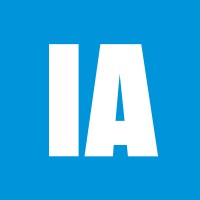Thus far the LDF has netted some £363m, the Revenue reported.
The latest data on the LDF came in a statement on Monday that preceded, by a few hours, the signing in London of a double tax agreement between Liechtenstein and the UK.
The DTA was described as having been intended to remove obstacles to investment and other cross-border economic activity, and to give businesses “increased certainty about their tax treatment”.
The agreement was the first between the two countries, and was signed by Liechtenstein prime minister Klaus Tschutscher and UK Exchequer Secretary David Gauke.
The two countries also signed a third joint Declaration on the Memorandum of Understanding on cooperation in tax matters, which was drawn up to add clarity to the LDF, and a so-called Taxpayer Assistance and Compliance Programme that exists in Liechtenstein. This “makes available a single charge rate of 50% that Liechtenstein investors might apply to calculate undisclosed UK tax liabilities for the tax year 2010/2011,” according to the HMRC statement.
Signed in August 2009, the Liechtenstein Disclosure Facility originally had been scheduled to run until 31 March 2015, but was later extended to 5 April 2016.
In August 2010, when only 419 taxpayers had signed up to the LDF, there had been concerns that the scheme was not attracting as many people as initially expected, possibly, it was said at the time, because few people knew it existed, or realised how attractive it was.
US clients informed
Monday’s signing of the Liechtenstein/UK DTA came one day after a Bloomberg report that Liechtenstein authorities had informed American clients of Liechtenstein’s oldest bank that the US tax authorities had asked to see their account details.
Bloomberg said the request had been made to Liechtensteinische Landesbank , and that it involved accounts that had a minimum of $500,000 at any point beginning in 2004.
Bloomberg cited as a source a 30 May letter sent to a client by Liechtenstein’s tax authority.
Liechtenstein has been caught up in ongoing investigations by the US, France, Germany and Italy into tax evasion by their citizens. The investigations date back to 2008, when data stolen from a Liechtenstein bank owned by the principality’s royal family was used by Germany to prosecute some of its citizens for tax evasion. Rather than attempting to obfuscate subsequent investigations by foreign tax authorities, Liechtenstein decided to find a solution that would work for its banks, their clients and the countries to whom tax was owed.
In doing so, Liechtenstein hoped to attract undeclared offshore assets from other financial centres, as wealthy individuals took advantage of the LDF to come forward with assets that sooner or later would become impossible, in an increasingly transparent world, to hide.





